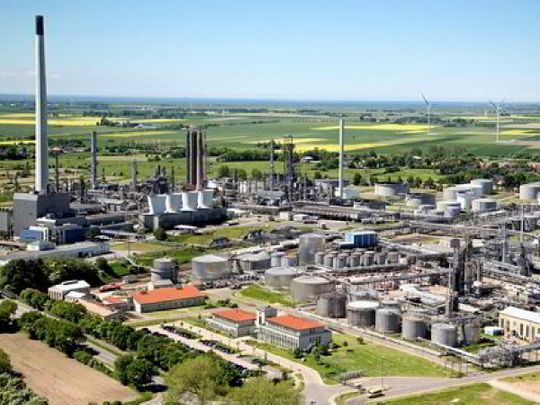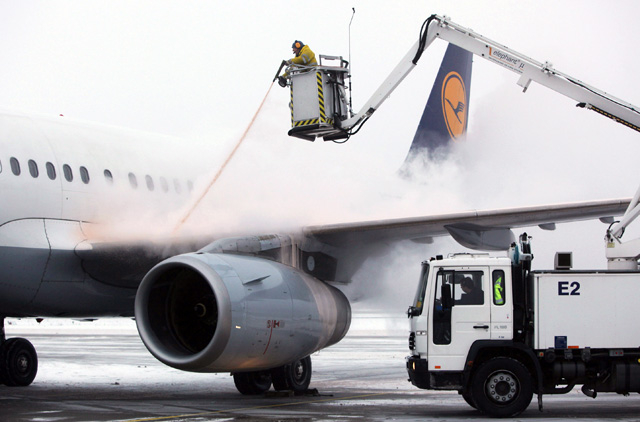
German oil refinery to build 30 MW hydrogen electrolysis plant
FRANKFURT: Companies involved in a hydrogen project at the Heide oil refinery near Hamburg said on Monday they would build a 30 megawatts (MW) electrolysis plant as a first step towards developing commercial-scale carbon-free energy.
Germany last month agreed a national hydrogen strategy to help to decarbonise the economy, including providing 9 billion euros ($10.58 billion) to help promote new projects that can make the transition from pilot status to production of marketable clean fuel.
SEE MORE
- Ford reveals Mustang Mach-E race car with 1,400 horsepower
- Nissan Ariya electric coupé crossover breaks cover
- This electric car for teens is shaking up battle for Paris’s streets
- GM moves to build nationwide electric-vehicle charging network in the US
- Amid COVID-19 pandemic, mopeds, scooters have a moment in car-loving US
The country is aiming for 5,000 MW of electrolysis capacity by 2030 to replace conventional and nuclear power and to develop fuel for heating and transport to eventually replace gas and oil.
Funding
The partners involved in the Heide refinery project, known as WESTKUESTE 100, received approval for 30 million euros in funding from the economy ministry. They are providing 59 million euros making at total investment of 89 million, they said.
The spending plans are modest but the size of the plant - at 30 MW - is a considered a game changer in the development of hydrogen as a fuel.
Germany has been experimenting with around 40 electrolysis plants for a decade but the biggest so far measures 6 MW.
The plant will pass electricity from wind turbines through water to extract carbon-free hydrogen that will be used by the Heide refinery instead of fossil fuel-based hydrogen.
The plant will also produce alternative hydrogen fuels for the raw material needs of the partners in the project ranging from heat to kerosene and plastics.
Partners
The 10 partners in the project include the German sections of French utility EDF and cement maker Holcim , gas pipeline operator Open Grid Europe (OGE), Danish wind company Orsted, the Heide refinery, the Heide town's municipal utility, local utility network Thuega and Thyssenkrupp Industrial Solutions.
Eight of the partners are companies which are working with the Heide region's public sector development agency and the Westkueste University of Applied Sciences.
EDF, Orsted and the privately-owned Heide refinery will construct the plant in a newly founded joint-venture partnership.
Green hydrogen
The "green hydrogen" plant powered by a dedicated Orsted offshore wind farm and producing carbon-neutral aviation fuel could be up and running in Europe by 2030 if an ambitious project backed by the German government goes according to plan.
The WESTKUESTE 100 project has been named by federal energy and economy minister Peter Altmaier as one of Germany’s “real-world laboratories of the energy transition” and is set to receive “close to €100m” of government funding.
The project in northwest Germany, at the site of the Heide oil refinery, will be a unique example of cross-sector co-operation and technology, and show how local wind farms how they can use their excess energy — about 40% of which was wasted last year due to grid constraints.
For the pilot project, surplus wind energy that would otherwise be curtailed, will power 30MW of alkaline electrolysers that will split water molecules into hydrogen and oxygen.
The oxygen will be sold to a nearby cement plant for use as “oxyfuel”, with the waste heat from the electrolysis process sold to a nearby district heating system, thus creating additional revenue streams. Most electrolysis projects simply release the heat and oxygen into the air.

The "green hydrogen" will be combined with carbon dioxide captured from the cement plant to produce synthetic methanol, which would then be refined into carbon-neutral synthetic kerosene (ie, aviation fuel), for use at the nearby Hamburg airport.
The airport is hoping that 5% of all fuel used there will be carbon-neutral by 2025.
The Heide refinery happens to have huge salt caverns on its land where up to ten millions tonnes of hydrogen can be stored, as well as a dedicated bidirectional hydrogen pipeline to a Linde grey-hydrogen facility 30km away — so large amounts of green hydrogen could eventually be stored and transported via pipeline for use elsewhere, including injection into the natural-gas grid.








